External links
- The Farmer's Wife page on the official Frontline website
The Farmer's Wife is a 1998 documentary film by David Sutherland that follows Juanita and Darrel Buschkoetter, a young couple living on and maintaining a farm in rural Nebraska, who face difficulties holding on to their finances, their livelihood, and their marriage. The film aired in three parts on the PBS series Frontline in September 1998.
Part 1 of The Farmer's Wife recounts the moving story of Juanita and Darrel Buschkoetter's romantic love affair and begins the journey to the core of their emotional struggles, which have pushed their marriage to the brink. David Sutherland eschews the use of a narrator in this film, allowing Darrel and Juanita tell their own story in their own words, without the intrusion of a narrator, and to let the story play out on its own.
In Part 2, the camera focuses on the rhythms of everyday life on the Buschkoetters' farm. The film follows Juanita, Darrel, and their three daughters through days reminiscent of a forgotten, simpler time in America]] Difficulties arise, however: In September, an early frost destroys 30% of their crop. The loss forces Darrel to go to work at a nearby farm (making $7/hour in return), while he farms his own land at night. Juanita, meanwhile, cleans houses while trying to get a college degree so Darrel can stay home and farm. Darrel, however, worries that if Juanita goes off the farm, she'll find a job and life she likes better. By Christmas, the family is dead broke and unsure of their future.
In the concluding episode, Darrel finally harvests the bumper crop he had dreamt about his whole life. It's not quite enough, however, as Darrel has to work for another farmer just to make enough money to feed his family. The resulting stress andexhaustion cause him to explode, prompting Juanita to take their daughters and leave the farm for a week. The move has a deep and profound effect on Darrel. Two months later, through counseling, Darrel learns to manage his anger and undergoes extraordinary personal growth. Darrel agrees to be the at-home parent, farming and caring for his three daughters while Juanita, college degree in hand, works at a respected crop insurance company in order to help other struggling farmers. In the end, through faith, hope, and hard work, the Buschkoetters save their farm and rediscover the love that holds them together.

Jasmine is a novel by Bharati Mukherjee set in the 1980s about a young Indian woman in the United States who, trying to adapt to the American way of life in order to be able to survive, changes identities several times. Mukherjee's own experiences of dislocation and displacement in her life helps her in recording the immigrant experience of the protagonist in this novel.
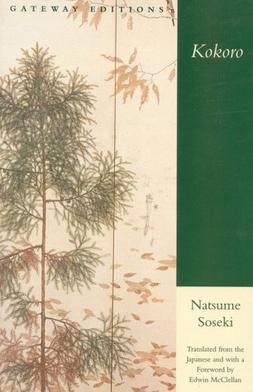
Kokoro is a 1914 Japanese novel by Natsume Sōseki, and the final part of a trilogy starting with To the Spring Equinox and Beyond and followed by The Wayfarer. Set in the Meiji era, the novel tells of the acquaintance between a young man and an older man called "Sensei", who holds a secret from his past regarding the death of a friend.

The River is a 1984 American drama film directed by Mark Rydell, written by Robert Dillon and Julian Barry, and starring Sissy Spacek, Mel Gibson, and Scott Glenn. The film tells the story of a struggling farm family in a Tennessee river valley trying to keep its farm from going under in the face of bank foreclosures and floods. The father faces the dilemma of having to work as a strikebreaker in a steel mill to keep his family farm from foreclosure. It was based on the true story of farmers who unknowingly took jobs as strikebreakers at a steel mill after their crops had been destroyed by rain.

The 158-Pound Marriage is the third novel by American author John Irving. The book explores the sexual revolution-era trend of "swinging" (partner-swapping) via a glimpse into the lives of two couples in a small New England college town who enter casually into such an affair, with disastrous consequences.

Almanzo James Wilder was an American farmer as well as the husband of Laura Ingalls Wilder and the father of Rose Wilder Lane, both noted authors.

Hateship, Friendship, Courtship, Loveship, Marriage is a book of short stories by Alice Munro, published by McClelland and Stewart in 2001.

Thomas Lincoln Sr. was an American farmer, carpenter, and father of the 16th president of the United States, Abraham Lincoln. Unlike some of his ancestors, Thomas could not write. He struggled to make a successful living for his family and faced difficult challenges in Kentucky real estate boundary and title disputes, the early death of his first wife, and the integration of his second wife's family into his own family, before making his final home in Illinois.

Nectar in a Sieve is a 1954 novel by Kamala Markandaya. The book is set in India during a period of intense urban development and is the chronicle of the marriage between Rukmani, youngest daughter of a village headman, and Nathan, a tenant farmer. The story is told in the first person by Rukmani, beginning from her arranged marriage to Nathan at the age of 12 to his death many years later.
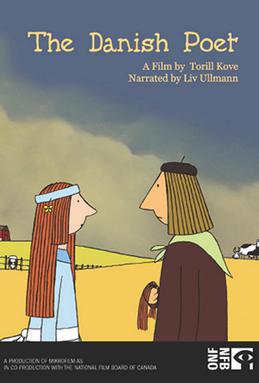
The Danish Poet is a 2006 animated short film written, directed, and animated by Torill Kove and narrated by Liv Ullmann. A co-production of the National Film Board of Canada (NFB) and Mikrofilm AS of Norway, it has won both the Academy Award and Genie Award for best animated short film.

Precious Bane is a historical romance by Mary Webb, first published in 1924. It won the Prix Femina Vie Heureuse Prize in 1926. Webb wrote it while living in Hampstead Grove in London.
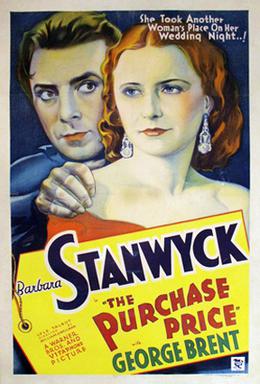
The Purchase Price is a 1932 pre-Code American romantic drama film directed by William Wellman and starring Barbara Stanwyck, George Brent and Lyle Talbot. Adapted from the novel The Mud Lark by Arthur Stringer, with a screenplay by Robert Lord, the film is about an attractive nightclub singer who leaves her criminal boyfriend and becomes the mail-order bride of a humble farmer.
La Carreta is a 1953 play by Puerto Rican playwright René Marqués. The story follows a family of "jíbaros", or rural peasants, who in an effort to find better opportunities end up moving to the United States.

"Neighbour Rosicky" is a short story by Willa Cather. It appeared in the Woman's Home Companion in 1930, under the title "Neighbor Rosicky". In 1932, it was published in the collection Obscure Destinies.

Black Tickets (1979) is a collection of short stories by American writer Jayne Anne Phillips. The collection was published by Delacorte Books/Seymour Lawrence. In 1980, it won the inaugural Sue Kaufman Prize for First Fiction.

Eternal Call was a Soviet epic TV series. It was filmed by directors Vladimir Krasnopolsky and Valery Uskov based on the novel of the same name by Anatoli Ivanov at Mosfilm Studios. It ran from June 2, 1976, to May 20, 1983, on the Soviet Central Television.
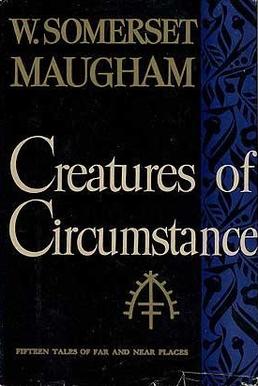
Creatures of Circumstance is a collection of 15 short stories by the British writer W. Somerset Maugham, first published by William Heinemann in 1947. It was the last collection of stories prepared by the writer.
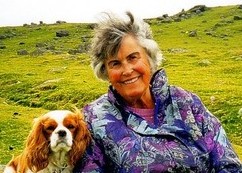
Juanita Casey was a poet, playwright, novelist and artist as well as a horse and zebra trainer and breeder. Her writing celebrates her time in Ireland and the New Forest. Having been critically neglected, Casey returned to prominence with the July 2022 reissue of her darkly comic and poetic 1971 novel, The Horse of Selene.

David Russell Sutherland is an American documentary filmmaker who has won over 100 international awards and citations for his films.
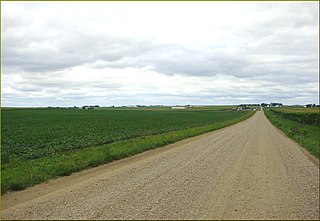
Farmers' suicides in the United States refers to the instances of American farmers taking their own lives, largely since the 1980s, partly due to their falling into debt, but as a larger mental-health crisis among U.S. agriculture workers. In the Midwest alone, over 1,500 farmers have taken their own lives since the 1980s. It mirrors a crisis happening globally: in Australia, a farmer dies by suicide every four days; in the United Kingdom, one farmer a week takes their own life, in France it is one every two days. More than 270,000 farmers have died by suicide since 1995 in India.
"Holiday" is a short story by Katherine Anne Porter which first appeared in The Atlantic Monthly in December 1960. The work is included in The Collected Stories of Katherine Anne Porter (1965). The story received the O. Henry Memorial Award in 1962.